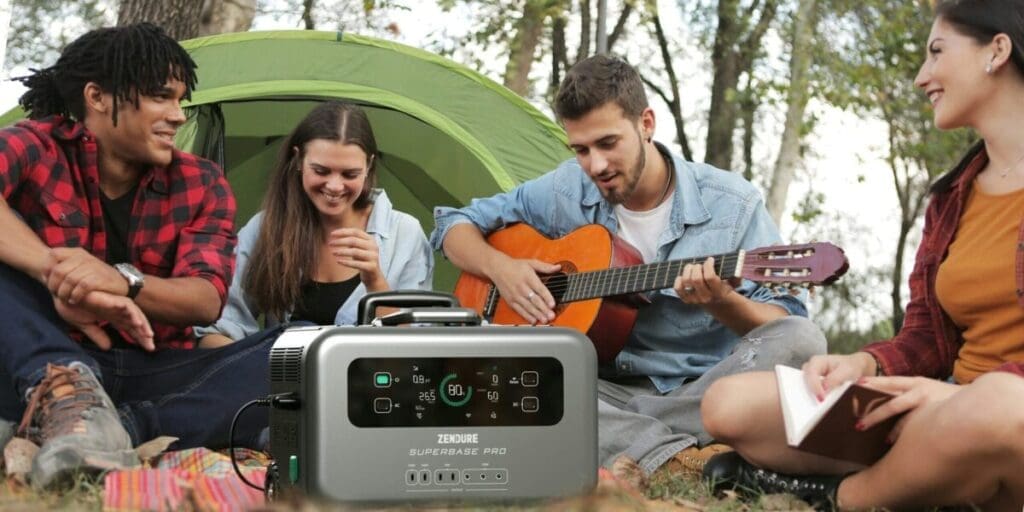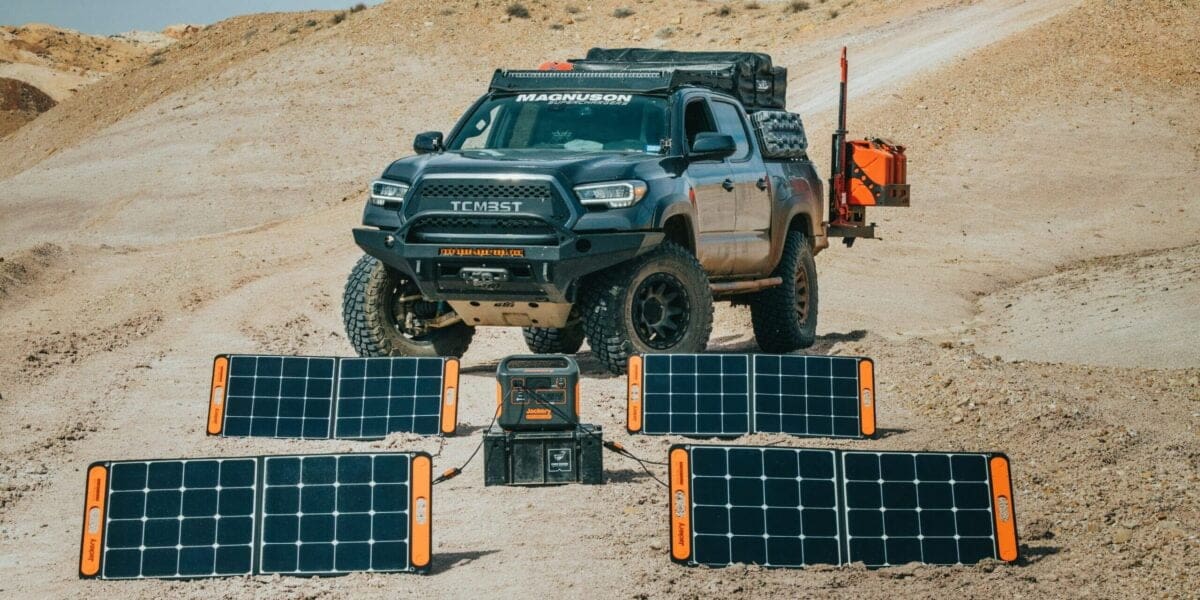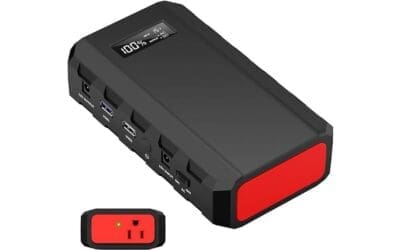Imagine a solar generator as a versatile tool in your arsenal, much like a Swiss army knife for powering your devices. As you contemplate the idea of relying on the sun for your energy needs, it's essential to weigh the pros and cons of these innovative devices. While solar generators offer independence and eco-friendliness, there are nuances to consider that could impact your decision. Stay tuned to uncover the intricate details that will help you navigate the world of solar generators with confidence and clarity.
Key Takeaways
- Solar generators offer free, renewable energy from the sun with versatile charging options.
- They are clean, low-maintenance, and emit no harmful emissions, suitable for various applications.
- Despite high upfront costs and weather dependency, solar generators provide quiet, portable power solutions.
- Best for charging devices, backup power in emergencies, and limited power needs, not for whole-house power.
Solar Generator Basics
What are the fundamental components that make up a solar generator, and how do they work together to harness solar energy efficiently? Solar generators consist of key components like solar panels, a charge controller, a battery, and an inverter. To ensure optimal performance, regular solar generator maintenance is crucial. Stay updated on solar generator market trends to make informed decisions about maintenance routines and upgrades. By understanding the intricacies of these components and their interplay, you can maximize the efficiency of your solar generator. Stay vigilant about maintenance tasks and keep an eye on market trends for advancements that could enhance the performance and longevity of your solar generator.

Components and Functionality
Solar generator components work together seamlessly to harness solar energy efficiently. Energy conversion occurs as solar panels capture sunlight and convert it into electricity, managed by a charge controller to regulate the power flow. Battery integration is crucial for storing excess energy generated during peak sunlight hours, ensuring a continuous power supply even when sunlight is scarce. The inverter then converts this stored energy into usable power for various devices through output options like USB ports, AC outlets, and 12-volt car outputs. Understanding the synergy between these components is vital for optimizing the performance of your solar generator and maximizing its utility in off-grid situations or as a backup power source.
Advantages of Solar Generators
Harness the power of the sun with solar generators, offering numerous advantages for your portable energy needs. Here are three key benefits to consider:
- Cost Savings: By harnessing free fuel from the sun, you can significantly reduce your energy expenses over time.
- Environmental Impact: Embrace clean renewable energy with solar generators, contributing to a greener planet and reducing your carbon footprint.
- Versatile Charging Options: Enjoy the convenience of multiple charging options, such as USB ports and AC outlets, ensuring compatibility with various devices and appliances.
Embrace these advantages to not only save money but also make a positive impact on the environment while meeting your portable energy needs efficiently.
Drawbacks of Solar Generators
While solar generators offer numerous advantages, they also come with several drawbacks that need to be considered. One significant drawback is the slow recharging process, which can be an inconvenience when you need quick access to power. Additionally, solar generators are weather-dependent, meaning their efficiency can be reduced on cloudy days or during adverse weather conditions. This dependency on sunlight may limit their effectiveness in certain situations. It's essential to keep these drawbacks in mind when evaluating whether a solar generator is the right choice for your power needs. Be prepared for potential delays in recharging and fluctuations in performance based on the weather conditions in your area.
Best Uses and Guidelines
Consider the intended purpose and power requirements when determining the optimal use of solar generators. When it comes to solar generators, understanding the best uses and guidelines can help maximize their efficiency. Here are three key points to consider:
- Emergency Preparedness: Solar generators are ideal for providing backup power during emergencies such as power outages or natural disasters.
- Outdoor Adventures: Whether camping, boating, or enjoying other outdoor activities, solar generators can offer a reliable power source for your devices and small appliances.
- Limitations: While useful for charging devices and small appliances, solar generators may not be suitable for powering entire homes due to their limited power supply.
Choosing the Right Solar Generator
To select the ideal solar generator for your needs, prioritize understanding your power requirements and assessing the available features of various models. When choosing a solar generator, consider solar generator sizing to ensure it can meet your power needs. Evaluate the battery capacity to determine how long the generator can power your devices. Look for models with sufficient battery storage for your intended use. Compare different generators based on their capacity to handle your devices and appliances. Additionally, consider the portability of the generator, especially if you plan to use it for outdoor activities. By focusing on these factors, you can select a solar generator that best suits your power requirements and usage preferences.
Assessing Power Needs
Understanding your power requirements is crucial when assessing the appropriate solar generator for your needs. To effectively evaluate efficiency and power consumption, consider the following:
- Identify Your Power Needs: Calculate the wattage requirements of the devices you plan to power to determine the necessary output capacity for the solar generator.
- Assess Energy Usage Patterns: Analyze your daily power consumption habits to choose a solar generator with a battery capacity that can sustain your needs during periods of low sunlight.
- Consider Future Expansion: Anticipate any potential increase in power demands and ensure the solar generator you select can accommodate your evolving energy requirements.
Portable Solar Panel Pairing
When evaluating portable solar panel pairing for your solar generator, assess the compatibility and efficiency of combining these components for enhanced power generation. Portable power solutions rely on the synergy between solar panels and your generator to optimize energy efficiency. Consider the wattage and voltage compatibility of the solar panels with your generator for seamless integration. Efficient portable power generation hinges on selecting panels that can maximize energy conversion and storage. Below is a table outlining key factors to consider when pairing portable solar panels with your solar generator:
| Key Factor | Description |
|---|---|
| Wattage Compatibility | Ensure solar panel wattage matches or is slightly higher than generator input. |
| Voltage Output | Check if panel voltage aligns with the generator's charging requirements. |
| Portability | Choose lightweight and compact panels for easy transportation. |
| Energy Efficiency | Opt for high-efficiency panels to maximize power generation. |
| Durability | Select panels built to withstand outdoor conditions for long-term use. |
Solar Energy Resources
Explore a wealth of information and tools to enhance your understanding of solar energy resources. Here are three key elements to delve into:
- Solar Panel Efficiency: Understand the efficiency ratings of solar panels to maximize energy production and utilization.
- Cost Calculators: Utilize online tools to accurately estimate the costs associated with installing solar panel systems.
- Industry Updates: Stay informed on the latest news regarding solar technology advancements, savings, and incentives.
Going Solar: Utility Integration
To seamlessly transition into discussions about 'Going Solar: Utility Integration,' it's essential to consider how solar energy resources can be effectively utilized in conjunction with existing utility systems. When integrating solar power into your utility setup, explore available utility incentives that can offset costs and enhance savings. Ensure a seamless grid connection that allows for efficient energy transfer between your solar generator and the main power grid. By leveraging utility incentives and optimizing grid connections, you can maximize the benefits of your solar generator while contributing to a more sustainable energy landscape. Stay informed about local regulations and programs that support solar integration to make the most of this eco-friendly power source.
Some Final Thoughts
Now that you have explored the advantages and drawbacks of solar generators, you are equipped to make an informed decision. Harnessing the power of the sun offers clean, renewable energy for various uses, but it's important to consider factors like upfront costs and recharging limitations. By understanding the components and functionality of solar generators, you can maximize their benefits and integrate them into your energy solutions effectively. Make the most of solar energy and power up with confidence!
Some Questions & Answers

Q: How Do Solar Generators Compare to Traditional Gas-Powered Generators in Terms of Cost and Efficiency?
When comparing solar generators to traditional gas-powered ones in cost and efficiency, consider this: solar generators may have higher upfront costs but offer free fuel from the sun, making them cost-effective long-term. In terms of energy efficiency, solar generators are clean, quiet, and renewable, without emissions. While gas generators may be cheaper initially, solar's advantages in the long run make them a smart choice for those prioritizing sustainability and savings.
Q: Are There Any Maintenance Requirements for Solar Generators, and if So, What Are They?
When it comes to solar generators, maintenance requirements are crucial. Regular cleaning of solar panels ensures optimal performance. Battery replacement is necessary after a certain number of charge cycles. By following these maintenance steps, you can prolong the lifespan of your solar generator and keep it running efficiently. Remember, proper care and upkeep are key to maximizing the benefits of solar power for your energy needs.
Q: Can Solar Generators Be Used in Off-Grid Locations, and What Are the Limitations in Such Scenarios?
When using solar generators in off-grid locations, consider their reliability and the challenges they may face. These systems can be limited by weather conditions and may struggle to provide consistent power in remote areas. To overcome off-grid challenges, ensure your solar generator has sufficient battery capacity and consider backup power options. Reliability in such scenarios depends on proper maintenance and understanding the system's limitations for uninterrupted power supply.
Q: What Are the Environmental Benefits of Using Solar Generators Compared to Other Power Sources?
When using solar generators, you benefit from their positive environmental impact. By harnessing renewable energy from the sun, you reduce reliance on fossil fuels and decrease harmful emissions. This transition to clean power sources aligns with environmental conservation efforts and promotes sustainability. Embracing solar generators not only provides you with reliable energy but also contributes to a greener and more eco-friendly future.
Q: Are There Any Government Incentives or Rebates Available for Purchasing and Using Solar Generators?
When considering solar technology, you might wonder about government incentives for solar generators. These incentives aim to promote clean energy adoption. Various programs offer rebates or tax credits for installing solar power systems, including generators. Understanding these incentives can help offset the upfront costs and make renewable energy more accessible. Researching available government incentives in your area can lead to cost savings and support for sustainable energy choices.



























